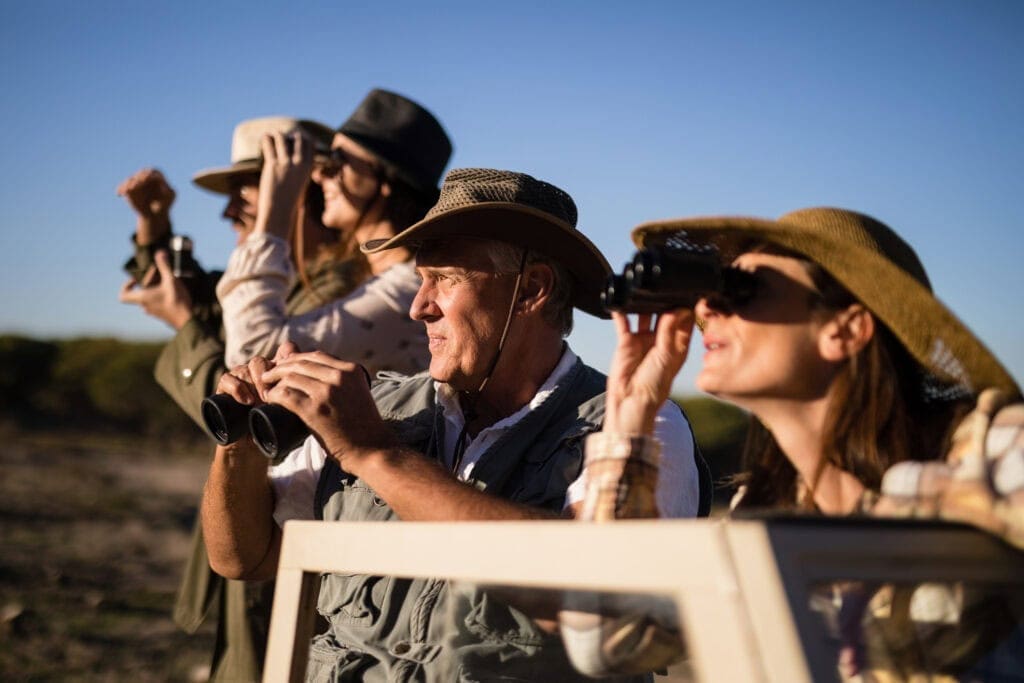As Africa emerges in the Fourth Industrial Revolution, it’s redefining the concept of “social currency” in ways that go beyond mainstream tech advancements. For many travelers, digital detox means stepping away from screens and reconnecting with nature – a trend that Africa supports in unique ways.
But it doesn’t mean Africa is being left behind. In fact, the continent is carving out a niche as a leader in conservation technology, using wearables, AI, and tracking tech to safeguard endangered wildlife.
The Innovation of Staying Offline
In today’s world, connectivity is seen as a necessity, but for travellers seeking respite from digital demands, Africa offers a tech-free paradise with some of the world’s most secluded safari lodges and off-grid experiences. For instance, Kwandwe Game Reserve in South Africa provides a pristine, phone-signal-free experience, letting visitors immerse themselves fully in the wilderness. Yet, out of the public eye, Kwandwe is at the forefront of using digital wearables for conservation.
Conservation Tech: Rhinos on the Radar
A groundbreaking project at Kwandwe leverages wearable technology to track rhinos, helping rangers protect these endangered animals. By fitting rhinos with GPS-enabled sensors on their feet, the reserve monitors their movements in real-time.
This use of tech isn’t for tourists but for the safety of rhinos in regions notorious for poaching. With data analysed by AI, any suspicious patterns or risks alert rangers, enabling rapid responses to protect the rhino population.
Africa’s Social Currency: Ready for Wearables?

While the global race for wearables is heavily consumer-driven, Africa is pioneering their use for conservation – a social currency in its own right. Travellers supporting these efforts invest in a movement that uses wearable tech to counteract human impact on wildlife.
Though African regions often face infrastructure challenges in terms of widespread mobile connectivity, they are succeeding where it matters most: conserving biodiversity.
A Revolution of Another Kind

Africa’s role in the Fourth Industrial Revolution may look different, but the continent’s adoption of smart technology in conservation proves that it’s more than ready for the future. For visitors, Africa offers an unparalleled digital detox, letting travellers experience the luxury of “offline” while supporting tech-driven conservation efforts.
Embracing both high-tech and low-tech, Africa stands as a testament to the powerful blend of tradition and innovation.
Author: Selene Brophy
Published: 16 December 2024
Last Update: 17 December 2024